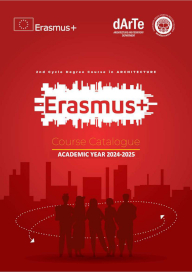|
Il convegno intende analizzare, in una dimensione internazionale, gli effetti dei processi di abbandono dei piccoli centri sul patrimonio culturale materiale e immateriale e individuare possibili strategie per il loro rilancio sociale e economico.
Oggi il fenomeno sta emergendo diffusamente in tutta la sua gravità, nonostante la crescente sensibilità verso temi legati alla salvaguardia del patrimonio culturale e a una maggiore propensione verso stili di vita partecipi alle problematiche ecologiche e sociali connesse ai grandi centri urbani.
In effetti, quella dei piccoli centri, spesso situati in aree marginali, interne e montane, è quasi sempre una storia fatta di partenze e di abbandoni ma solo raramente di ritorni. Emigrazione economica, denatalità, catastrofi naturali, epidemie, eventi bellici, cambiamenti climatici, nuove reti infrastrutturali, mutamenti socio-culturali sono solo alcuni dei fattori che nel corso dei secoli, in maniera congiunta o singolarmente, in modo repentino o graduale, hanno spinto e, specie in Italia, continuano a spingere le popolazioni ad abbandonare i loro luoghi di origine.
In quest’ottica, il convegno intende proporsi come un’occasione di approfondimento delle cause che hanno portato a processi di spopolamento dei piccoli insediamenti urbani e avviare una riflessione sugli effetti – reversibili o permanenti – che quei processi hanno generato sul territorio e sulle comunità. Perdendo abitanti, le comunità locali rischiano di smarrire la propria identità culturale, il patrimonio architettonico si degrada più rapidamente, le attività economiche vengono abbandonate, tradizioni millenarie rischiano di essere dimenticate. A ciò si aggiunga il considerevole aumento del rischio di dissesto idrogeologico, connesso alla mancata cura del territorio, mentre parallelamente, cresce la congestione nei centri urbani.
Il convegno intende quindi avviare un’ampia riflessione sulle strategie atte a contrastare il fenomeno dello spopolamento e individuare alcune tra le possibili modalità per la valorizzazione anche economica dei piccoli centri. A tal fine si pone in una prospettiva transdisciplinare, entro cui i settori che per tradizione si occupano dei fenomeni di trasformazione del territorio e del patrimonio costruito (il restauro, la storia dell’architettura, la storia della città e del territorio, l’urbanistica), si possano confrontare proficuamente con approcci metodologici diversi, quali quelli della sociologia, antropologia, storia economica, geografia urbana e territoriale.
|
|
The conference aims at analysing the effects of processes of abandonment on the tangible and intangible cultural heritage of European small towns and at identifying possible strategies for their social and economic re-launch. Today, in some countries, including Italy, the phenomenon of depopulation is dramatic: notwithstanding the recent increase of interest towards cultural heritage and attention to social and environmental problems related to big urban areas, in reality, many small towns and villages continue to lose inhabitants.
The history of European small towns, often located in peripheral, internal or mountain areas, almost always concerns people moving away, abandonments and, only rarely, people coming back. Migrations, falling birth rates, natural catastrophes, epidemics, wars, climate change, new road systems, cultural and social transformations: these are only a few of the numerous factors which, over the time - singularly or jointly, suddenly or gradually -, have led people to leave their places of origin.
In this perspective, the conference intends to be a moment of in-depth analysis on the reasons that caused, and continue to cause, the depopulation of villages and small towns.
The conference intends also to investigate the effects – permanent or reversible – which those processes have produced on the landscape and in the local communities. In losing inhabitants, in fact, local communities risk losing their cultural identity, architectural heritage deteriorates rapidly, working activities are abandoned and ancient traditions risk being forgotten. In addition, hydro geological instability often relevant increases due to the absence of land maintenance and, simultaneously, urban congestion grows unsustainably.
Moreover, the conference intends to launch a wide discussion on possible strategies aimed at contrasting depopulation phenomena and identifying solutions in order to valorise abandoned small towns.
The conference will have a transdisciplinary approach through which the disciplines that traditionally study the processes of transformation of architectural heritage and landscape – such as restoration, history of architecture, urban history – may productively work with the support of different fields, such as sociology, anthropology, history of economy, urban and territorial geography.
|











